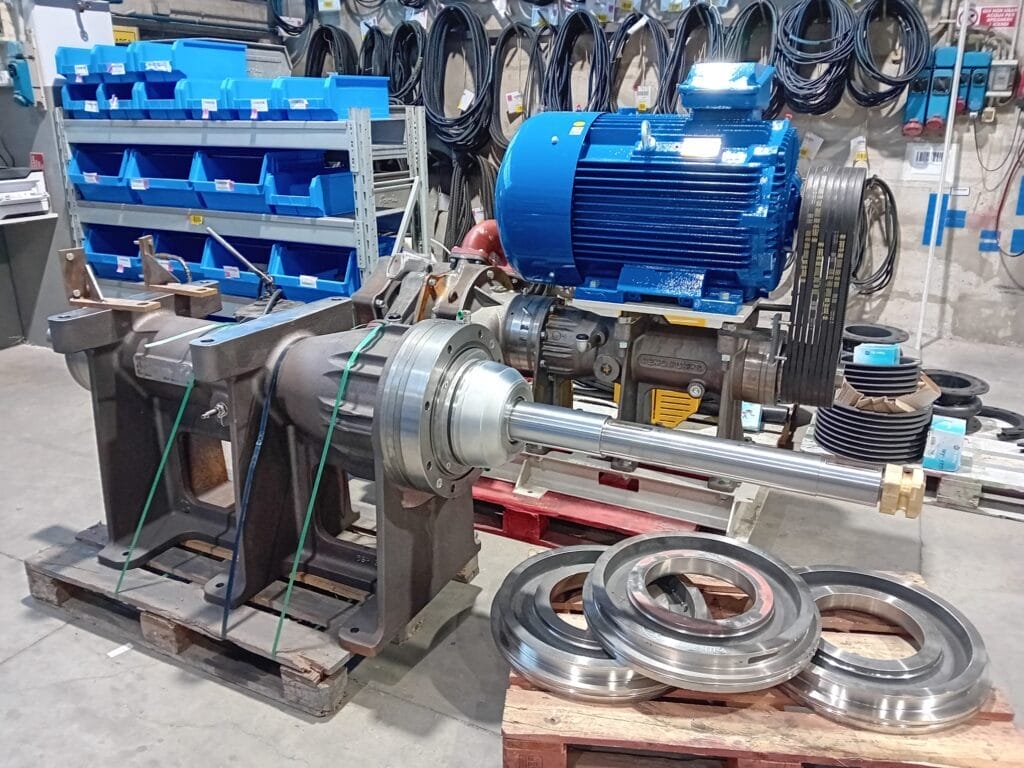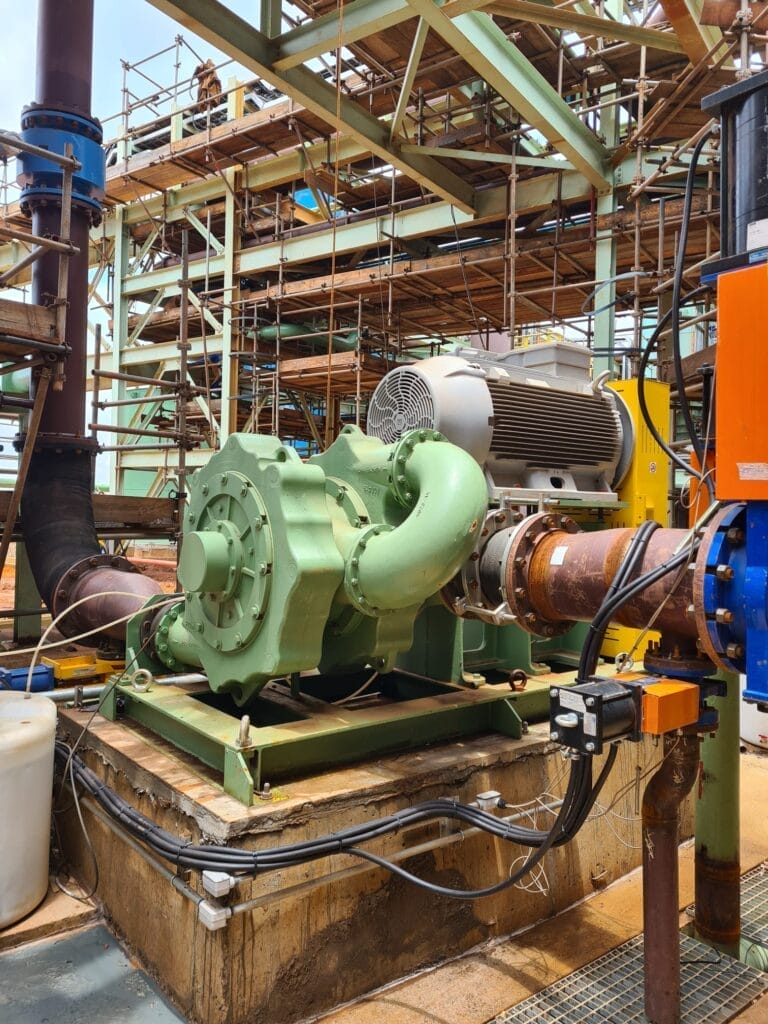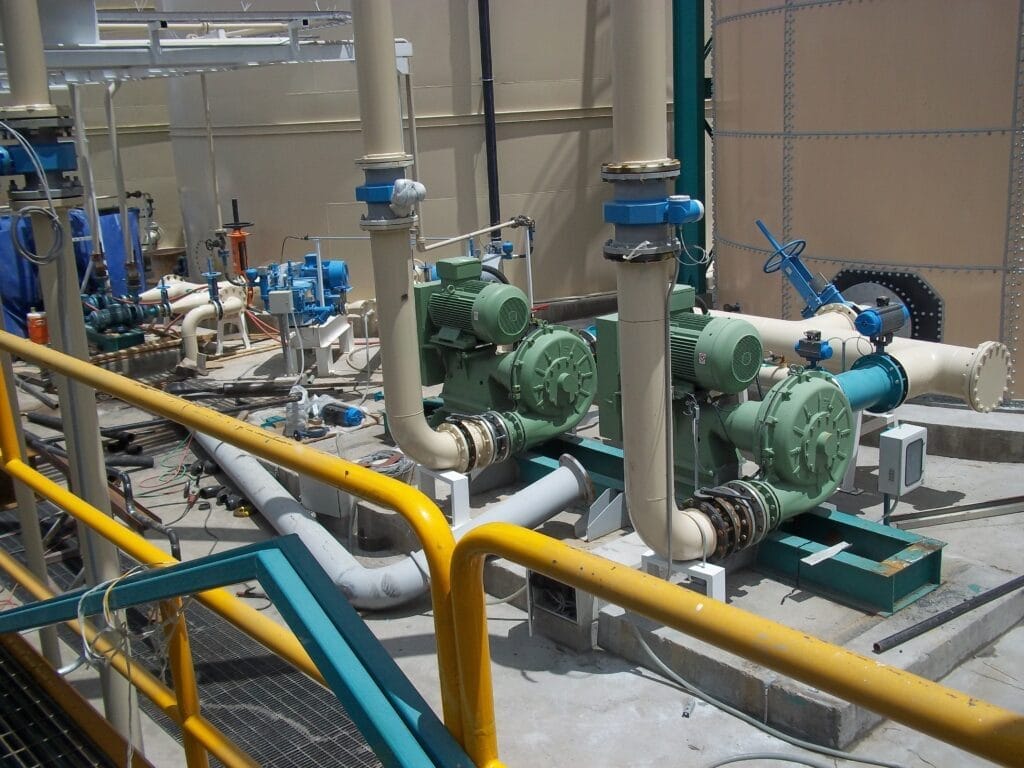Summary
Importance of filter press pumps
In the world of industrial filtration, filter press pumps play a critical role. These pumps are specifically designed to handle the unique requirements of filter press systems, which are widely used in various industries for solid-liquid separation. Understanding the basics, different types, working principle, maintenance, troubleshooting, and selection criteria for filter press pumps is essential for optimizing their performance and ensuring efficient filtration processes.
What are filter press pumps
A filter press pump is a type of positive displacement pump specifically designed to handle the unique challenges of filter press operations. filter press pumps are robust and powerful machines employed in filter press systems to provide the necessary pressure for the filtration and pressing processes. These pumps work by delivering a steady, high-pressure flow of liquid, enabling the separation of solids from the liquid phase.
Filter press pumps are widely used in various industries, including chemical, pharmaceutical, mining, and wastewater treatment. These industries rely on the efficient separation of solids and liquids to ensure product quality and environmental compliance.
How filter press pumps work
The primary function of filter press pumps is to generate the required pressure to effectively squeeze the liquid out of the filter press cake, resulting in solid-liquid separation.
When the filter press pump is activated, it creates a forceful flow of liquid that pushes against the filter press cake. This pressure causes the liquid to pass through the filter media, leaving behind the solid particles. The separated liquid then exits the system, while the solids are collected for further processing or disposal.
Filter press pumps are designed to handle high-pressure applications, ensuring efficient and thorough separation of solids and liquids. The robust construction of these pumps allows them to withstand the demanding conditions of filter press operations, providing reliable performance and longevity.
See here how does a plate filter press work

The working principle of filter press Pumps
To better understand how filter press pumps function, it is essential to grasp the working principle behind them. filter press pumps operate based on the combined processes of filtration and pressing.
The Filtration Process
During the filtration process, the pump delivers the liquid into the filter press chambers. As the liquid passes through the filter media, the solid particles are retained, forming a filter cake. The filter press pump maintains a steady flow of liquid through the filter media, ensuring efficient filtration and preventing clogging.
The Pressing Process
Once the filter press chambers are filled with the filter cake, the pressing process begins. The filter press pump applies increasing pressure to the cake, squeezing out the remaining liquid. This pressure forces the liquid to pass through the filter media, leaving behind a solid cake that can be easily removed.
Maintenance and troubleshooting
Maintaining and troubleshooting filter press pumps is crucial for their longevity and optimal performance. Regular maintenance and timely troubleshooting can help prevent costly breakdowns and minimize downtime.
Proper lubrication of the pump components, regular inspection, cleaning of valves, and monitoring the motor performance are some essential routine maintenance tips for filter press pumps.
Like any equipment, filter press pumps may encounter issues during their lifetime. Some common problems include leaks, excessive noise, and variations in performance. Troubleshooting these problems often involves inspecting the pump components, checking for blockages, adjusting valves, and replacing worn-out parts.
Pemo Pumps gives all the on-site maintenance service a customer needs everytime and everywhere.
Selecting the right filter press pump
Choosing the appropriate filter press pump for your specific application is essential to achieve optimal filtration efficiency and productivity.
Factors to Consider
When selecting a filter press pump, consider factors such as the required flow rate, pressure capacity, material compatibility, and filtration objectives. Additionally, the pump size should be suitable for the available space in your facility, and the motor power should meet the application’s demands. Pemo Pumps specialists can provide valuable insights and ensure the right pump selection.
Understanding Pump Specifications
Pump specifications, including flow rate, pressure rating, power consumption, and material construction, should be carefully evaluated to determine the pump’s suitability for the intended application. Comparing different pump models and their specifications can help identify the most suitable option for your specific filtration needs.
Investing in quality filter press pumps, performing routine maintenance, and staying proactive in troubleshooting will contribute to reliable pump performance and long-term productivity.
Pemo filter press pumps
Pemo’s Filter Press Feed Pumps are specifically designed for filter press environments. Actually there is little direct competition in this market due to the wide variety of
models developed from Pemo Pumps for this purpose. Actually, Pemo Pumps has sold thousands of filter press pumps to clients and manufacturers all over the world.
The main advantage of the Pemo Filter Press Pumps is the Side Suction on the Horizontal Design. The seal in this design only sees the feed pressure of the feed slurry instead of the high pressure from the discharge of the pump. This allows simple mechanical seal flushing systems to be used. The seal flush system is sealed so no water or sludge will leak during the flush cycle.

Furthermore:
- Pemo Filter Press Feed pumps are designed specifically for abrasive and/or corrosive applications using a variety of materials such as rubber lining, Hardalloy Pemo (750-800 HB), Stainless Steel or Hastelloy.
- Capacities when filling the filter press can reach 6613 GPM (1500 m3/h).
- Final Pressure can exceed 294 psi (20 bar) for the Triple Stage and for some
Double Stage Models, creating a much drier cake than single stage pumps can provide.
- Mechanical Seals are all Silica Carbide or Tungsten Carbide.
- The bearings are all specifically designed for filter press applications and are oil lubricated.
- Lubrication of the 2 mechanical seals can be done by use of clean water at 30 psi minimum pressure. It can also be done by use of glicole in a closed pressurized system.
- Some Pemo filter press pumps can also be provided in Submersible or Vertical versions.
These are the primary markets where Pemo filter press feed pumps are used, we also can provide to our clients references and case studies.
- Mining, Quarries, and Mineral Extraction
- Power Plants
- Aggregate Industry
- Stone Industry (Granite and Marble)
- Ceramic Industry
- Chemical Industry
- Steel Mills
- Industrial Wastewater Treatment.
Pemo Pumps is an Italian excellence in the custom pumps market. With a production 100% made in Italy, 60% of Pemo Pumps revenues comes from direct sales worldwide. Just one third of our sales are to Italian companies for direct use and for selling wordwide. Pemo Pumps has subsidiaries, representatives, and agents in 20 Countries and has more than 4,000 customers in the World.
Contact today our consultants to learn more about the complete range of Pemo Pumps.

